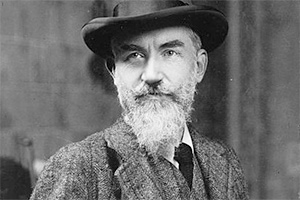

Immediately there was a woman Question, which has produced Married Women's Property Acts, Divorce Acts, Woman's Suffrage in local elections (Shaw 444). The moment that seemed no longer natural to some women, it became grievously oppressive.

The institutions assumed that it was natural to a woman to allow her husband to own her property and person, and to represent her in politics as a father represents his infant child. Now the material of the dramatist is always some conflict of human feeling with circumstances so that, since institutions are circumstances, every social question furnishes material for drama. Social questions are produced by the conflict of human institutions with human feeling. One critical point is that a good problem play is good chiefly because of the emotional content of the human condition portrayed in the text. In his 1895 essay on the problem play, Shaw states the primacy of social issues in modern drama, expressing himself in dramatic rather than directly sociopolitical terms. The sociopolitical climate of Shaw's England appears to have offered the playwright the subject of his conflict.

The plan of the research will be to set forth the pattern of ideas emerging in the work and the means by which such ideas are put forward, and then to discuss the character of the male-female relationships that surface in the action of the play. The purpose of this research is to examine Candida by George Bernard Shaw.


 0 kommentar(er)
0 kommentar(er)
